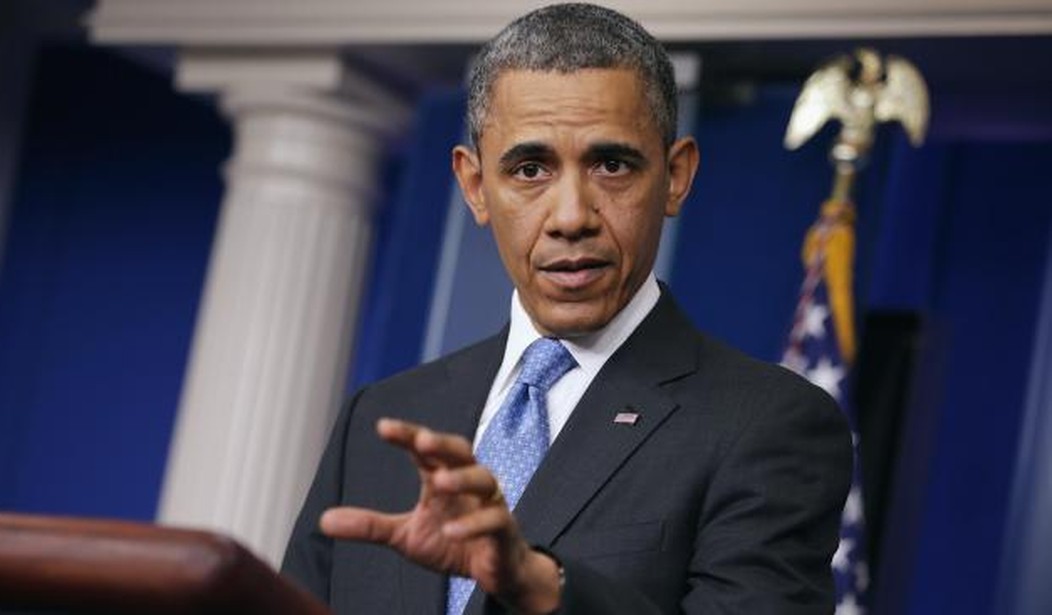WASHINGTON – Having emerged triumphant from the bitter shutdown/debt ceiling/Obamacare contretemps, President Obama might now expect to be in a strong position to advance his agenda on several fronts.
In a presentation delivered in the glow of victory after the House and Senate agreed to reopen the government’s doors and authorize the Treasury to borrow funds needed to pay the bills, the president mildly admonished his political foes – like the Tea Party Republicans who battled and lost – that “how business is done in this town has to change.”
“And now that the government is reopened, and this threat to our economy is removed, all of us need to stop focusing on the lobbyists and the bloggers and the talking heads on radio and the professional activists who profit from conflict, and focus on what the majority of Americans sent us here to do — and that’s grow this economy; create good jobs; strengthen the middle class; educate our kids; lay the foundation for broad-based prosperity and get our fiscal house in order for the long haul,” he said. “That’s why we’re here. That should be our focus.”
Regardless, at first glance it appears “the way business is done in this town” will exhibit little change and Obama will have no more sway with lawmakers than he did before the recent troubles despite his obvious victory. In fact, on some issues, his success may hinder his efforts. Republicans remain sore at the outcome and are exhibiting little interest in lending a helping hand.
Just how Obama intends to achieve those economic goals is unclear. The administration long ago gave up trying to convince a recalcitrant Congress that additional governmental stimulant will boost the economy and create jobs. And while Obama expressed hope that lawmakers will offer a budget that “cuts out the things that we don’t need, closes corporate tax loopholes that don’t help create jobs, and frees up resources for the things that do help us grow,” building prosperity is now in the hands of a congressional conference committee appointed to work through those issues.
There are areas of agreement – Obama and Republicans want to reduce the 35 percent business tax considered the world’s highest, tighten some loopholes afforded corporations and consider changes to entitlement programs to save money. But he’ll carry little influence as the GOP seeks other objectives as well.
That doesn’t mean the president is without ambitions as he grows close to entering the final three years of his administration. During that same White House speech he urged the House to address a long-delayed immigration reform measure by the end of the year.
“The Senate has already passed a bill with strong bipartisan support that would make the biggest commitment to border security in our history; would modernize our legal immigration system; make sure everyone plays by the same rules, makes sure that folks who came here illegally have to pay a fine, pay back taxes, meet their responsibilities,” Obama said.
And he wants lawmakers to begin anew on a farm bill that got hung up primarily on the issue of food stamps: House Republicans are demanding deep and dramatic cuts while Democrats look to retain the proposed funding levels.
Despite his recent hard-fought victory, Obama doesn’t have the same leverage he did in the government closure/debt ceiling fight to attain immigration and farm legislation to his liking. In fact, ongoing GOP bitterness over the outcome of that debate is likely to further complicate the achievement of those ends.
House Republicans already have rejected the concept of an omnibus immigration bill, preferring to chop the measure up in individual pieces, rendering it more difficult for provisions favored by minority Democrats to sneak through. And there is legitimate animosity, particularly among lawmakers with Tea Party leanings, toward the Senate bill that opens the door for the nation’s estimated 11 million undocumented residents to eventually gain citizenship.
Rep. Raul Labrador (R-Idaho), a key figure in the debate, recently told a panel audience that “I think it’d be crazy for the House Republican leadership to enter into negotiations with him (Obama) on immigration – and I’m a proponent of immigration reform.”
“So I think what he’s done over the last two and a half weeks — he’s trying to destroy the Republican Party,” Labrador said. “And I think that anything we do right now with this president on immigration will be with that same goal in mind — which is to try to destroy the Republican Party and not to get good policies.”
House Speaker John Boehner (R-Ohio), burned badly in the recent negotiations with the White House, is unlikely to lend a sympathetic ear to the president’s request. House Democratic Leader Nancy Pelosi, of California, has sponsored a bill very similar to the measure passed in the Senate in June but it’s unlikely to see the light of day even though it stands a decent chance of passing in a floor vote.
Boehner, ironically, is expected to employ the same tactic he used in the shutdown/debt ceiling debate – implement the Hastert rule, named after former House Speaker Denny Hastert, of Illinois, which holds that only those bills that carry the support of a majority of the Republican caucus will be called up for consideration. That probably spells doom for the Senate bill and any hope of illegal immigrants gaining a pathway toward citizenship.
The farm bill is equally tricky. The effort to slash the food stamp program is being steered by House Republican Leader Eric Cantor, of Virginia, who also feels animus toward the president as a result of the losing, bruising battle. Cantor wants to cut $40 billion from the food stamp program over the next 10 years and require adults between 18 and 50 without minor children to find a job or to enroll in a work-training program in order to receive benefits.
“This bill is designed to give people a hand when they need it most,” Cantor said. “Most people don’t choose to be on food stamps. Most people want a job. Most people want to go out and be productive so that they can earn a living, so that they can support a family, so that they can have hope for a more prosperous future. They want what we want. There may be some who choose to abuse this system – that’s not out of the realm of possibility – frankly it’s wrong. It’s wrong for hardworking, middle class Americans to pay for that.”
The decision ultimately will emerge from a conference committee.
Regardless, the bottom line seems to be that President Obama will have no more sway with lawmakers than he did before the recent troubles despite his obvious victory. In fact, on some issues, his success may hinder his efforts.









Join the conversation as a VIP Member